Albert Bandura Quotes
Collection of top 49 famous quotes about Albert Bandura
Albert Bandura Quotes & Sayings
Happy to read and share the best inspirational Albert Bandura quotes, sayings and quotations on Wise Famous Quotes.
 Misbeliefs in one's inefficacy may retard development of the very subskills upon which more complex performances depend
— Albert Bandura
Misbeliefs in one's inefficacy may retard development of the very subskills upon which more complex performances depend
— Albert Bandura
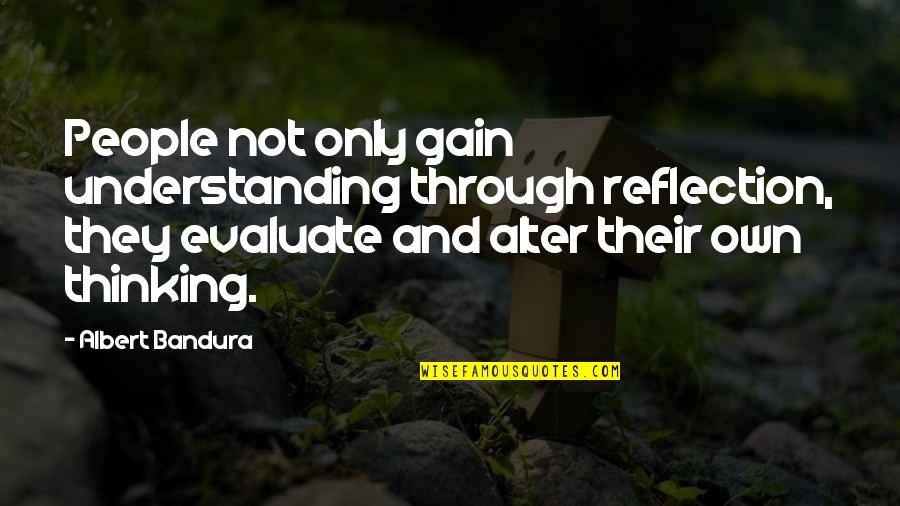 People not only gain understanding through reflection, they evaluate and alter their own thinking.
— Albert Bandura
People not only gain understanding through reflection, they evaluate and alter their own thinking.
— Albert Bandura
 Forceful actions arising from erroneous beliefs often create social effects that confirm the misbeliefs
— Albert Bandura
Forceful actions arising from erroneous beliefs often create social effects that confirm the misbeliefs
— Albert Bandura
 People who are insecure about themselves will avoid social comparisons that are potentially threatening to their self-esteem
— Albert Bandura
People who are insecure about themselves will avoid social comparisons that are potentially threatening to their self-esteem
— Albert Bandura
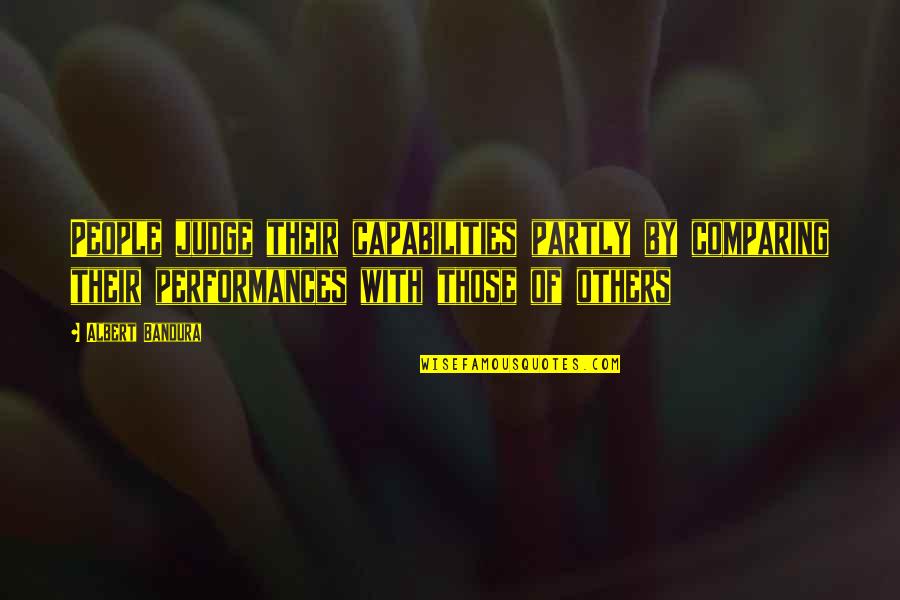 People judge their capabilities partly by comparing their performances with those of others
— Albert Bandura
People judge their capabilities partly by comparing their performances with those of others
— Albert Bandura
 Even noteworthy performance attainments do not necessarily boost perceived self-efficacy
— Albert Bandura
Even noteworthy performance attainments do not necessarily boost perceived self-efficacy
— Albert Bandura
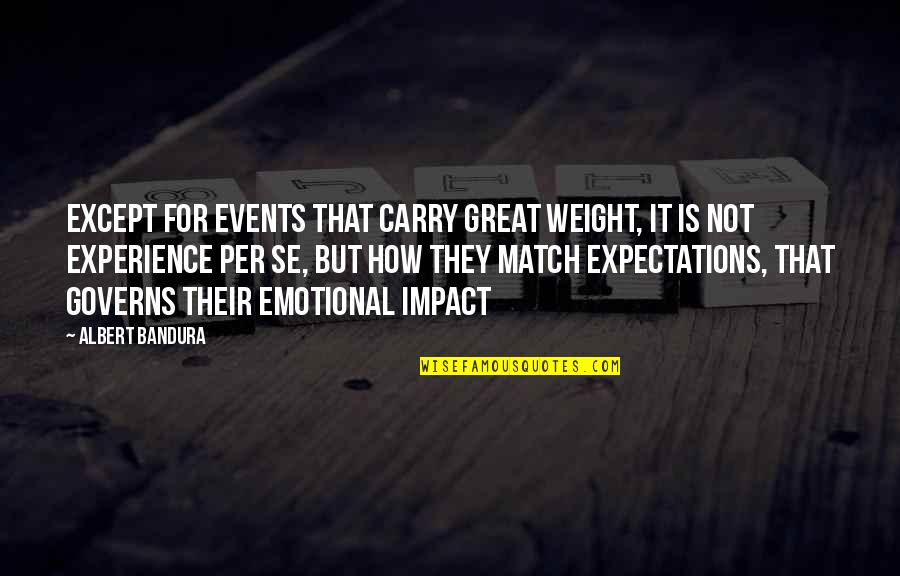 Except for events that carry great weight, it is not experience per se, but how they match expectations, that governs their emotional impact
— Albert Bandura
Except for events that carry great weight, it is not experience per se, but how they match expectations, that governs their emotional impact
— Albert Bandura
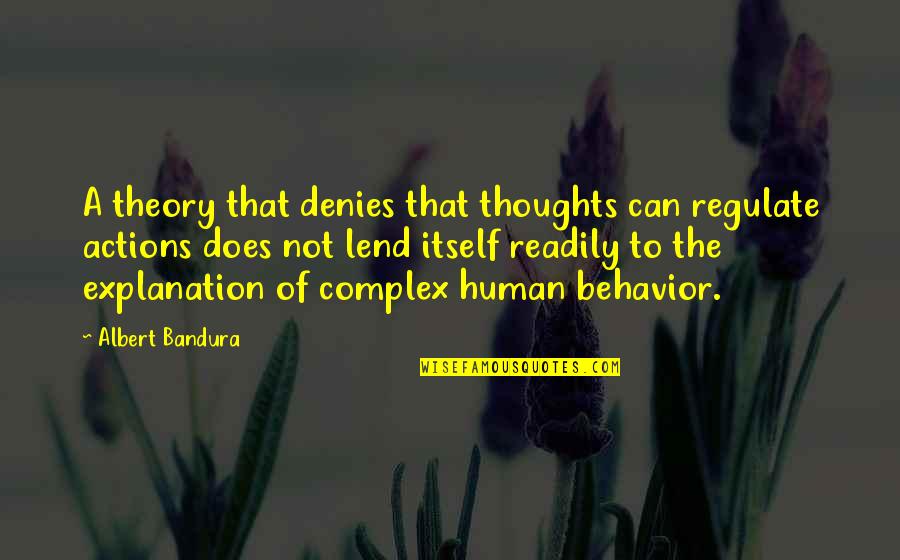 A theory that denies that thoughts can regulate actions does not lend itself readily to the explanation of complex human behavior.
— Albert Bandura
A theory that denies that thoughts can regulate actions does not lend itself readily to the explanation of complex human behavior.
— Albert Bandura
![Albert Bandura Quotes By Albert Bandura: Stringent standards of self-evaluation [can] make otherwise objective Albert Bandura Quotes By Albert Bandura: Stringent standards of self-evaluation [can] make otherwise objective](https://www.wisefamousquotes.com/images/albert-bandura-quotes-by-albert-bandura-1675315.jpg) Stringent standards of self-evaluation [can] make otherwise objective successes seem to be personal failures
— Albert Bandura
Stringent standards of self-evaluation [can] make otherwise objective successes seem to be personal failures
— Albert Bandura
![Albert Bandura Quotes By Albert Bandura: [Children] receive direct instruction from time to time Albert Bandura Quotes By Albert Bandura: [Children] receive direct instruction from time to time](https://www.wisefamousquotes.com/images/albert-bandura-quotes-by-albert-bandura-352865.jpg) [Children] receive direct instruction from time to time about the appropriateness of various social comparisons
— Albert Bandura
[Children] receive direct instruction from time to time about the appropriateness of various social comparisons
— Albert Bandura
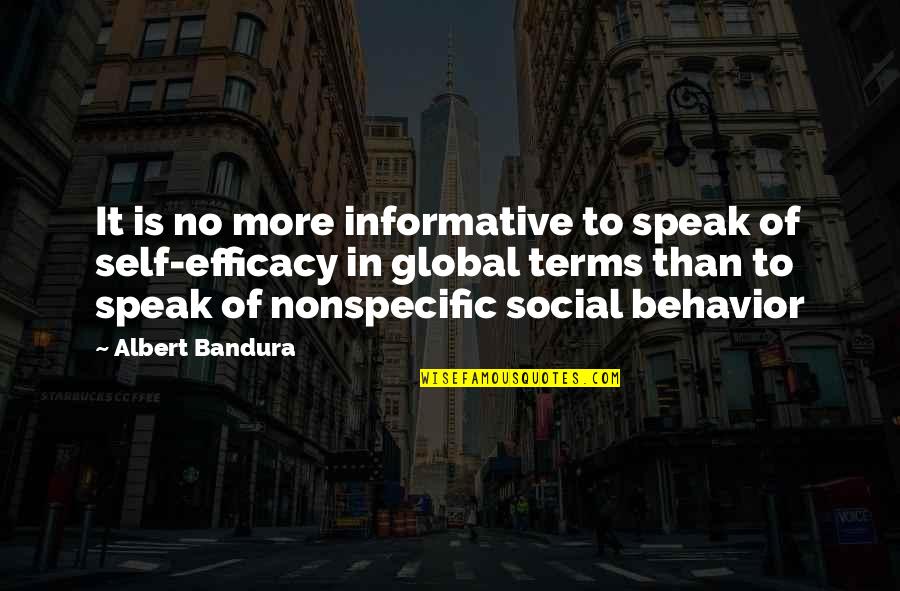 It is no more informative to speak of self-efficacy in global terms than to speak of nonspecific social behavior
— Albert Bandura
It is no more informative to speak of self-efficacy in global terms than to speak of nonspecific social behavior
— Albert Bandura
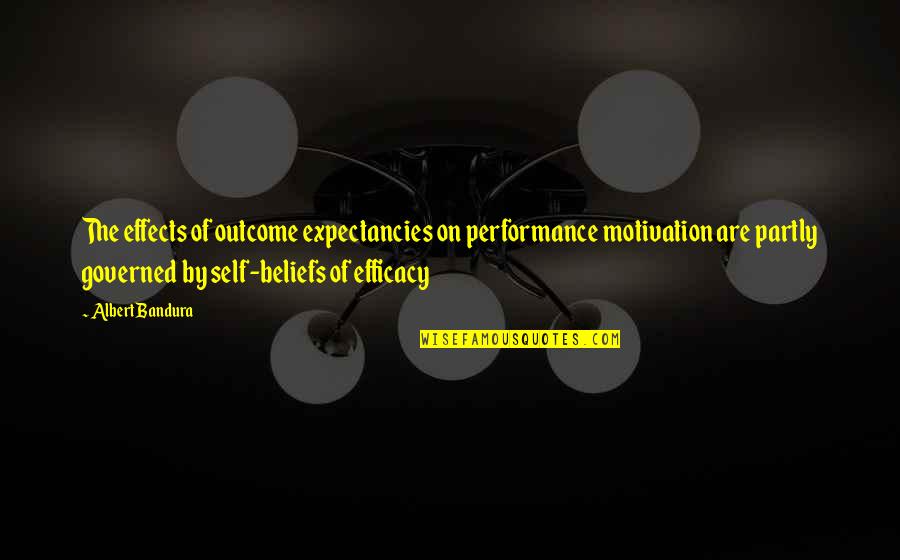 The effects of outcome expectancies on performance motivation are partly governed by self-beliefs of efficacy
— Albert Bandura
The effects of outcome expectancies on performance motivation are partly governed by self-beliefs of efficacy
— Albert Bandura
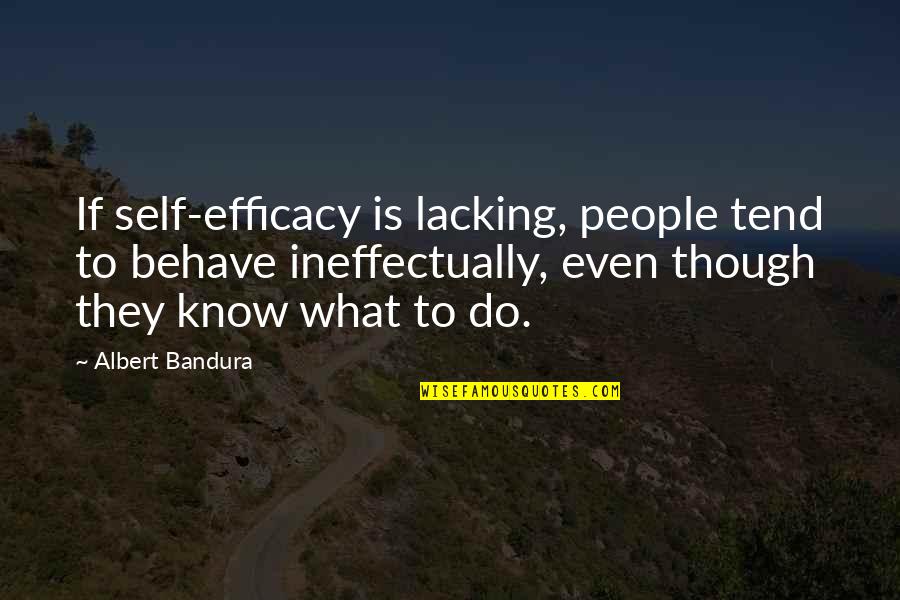 If self-efficacy is lacking, people tend to behave ineffectually, even though they know what to do.
— Albert Bandura
If self-efficacy is lacking, people tend to behave ineffectually, even though they know what to do.
— Albert Bandura
 Accomplishment is socially judged by ill defined criteria so that one has to rely on others to find out how one is doing.
— Albert Bandura
Accomplishment is socially judged by ill defined criteria so that one has to rely on others to find out how one is doing.
— Albert Bandura
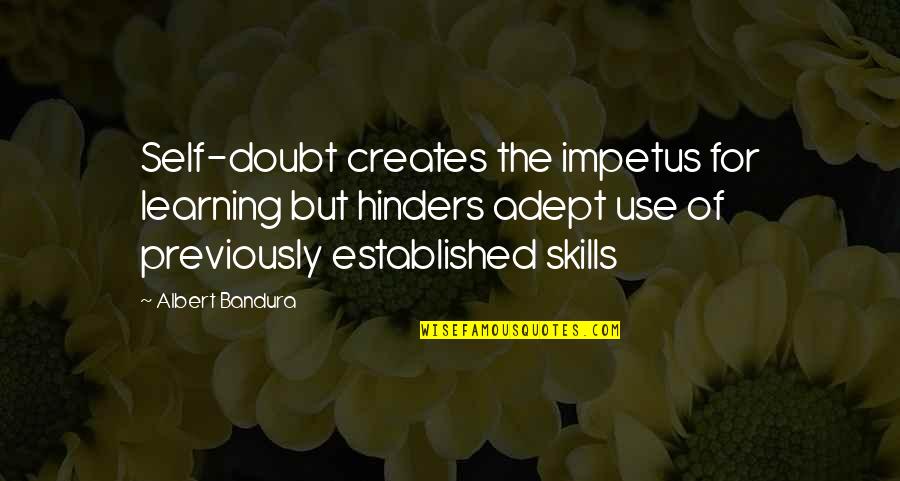 Self-doubt creates the impetus for learning but hinders adept use of previously established skills
— Albert Bandura
Self-doubt creates the impetus for learning but hinders adept use of previously established skills
— Albert Bandura
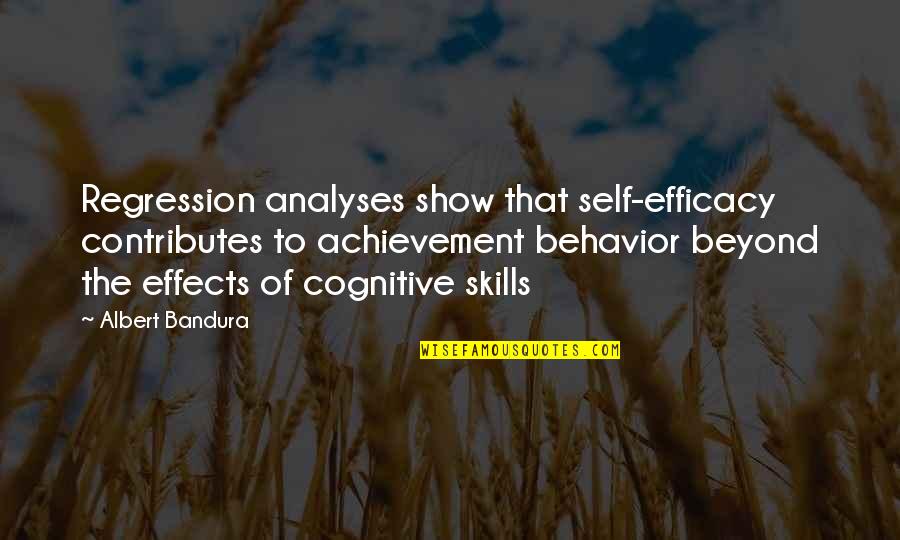 Regression analyses show that self-efficacy contributes to achievement behavior beyond the effects of cognitive skills
— Albert Bandura
Regression analyses show that self-efficacy contributes to achievement behavior beyond the effects of cognitive skills
— Albert Bandura
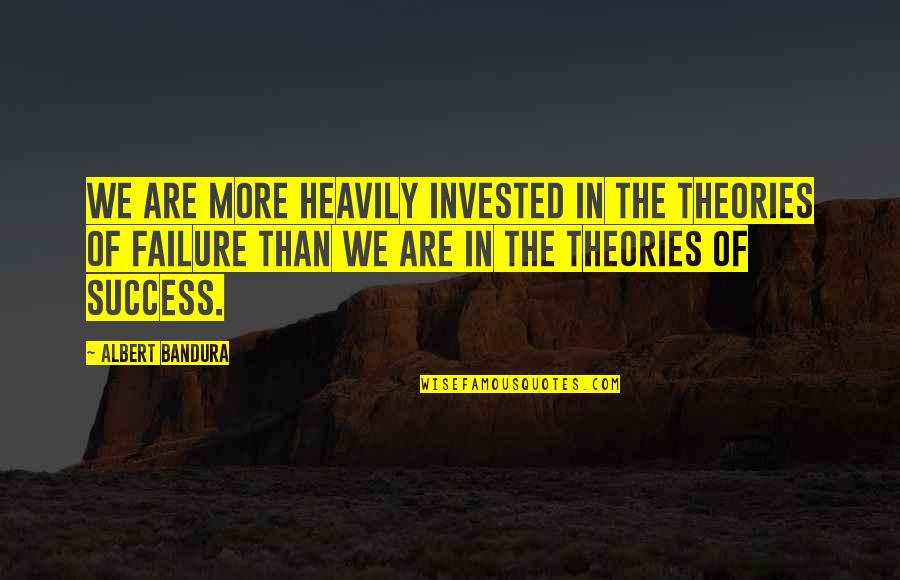 We are more heavily invested in the theories of failure than we are in the theories of success.
— Albert Bandura
We are more heavily invested in the theories of failure than we are in the theories of success.
— Albert Bandura
 Once established, reputations do not easily change.
— Albert Bandura
Once established, reputations do not easily change.
— Albert Bandura
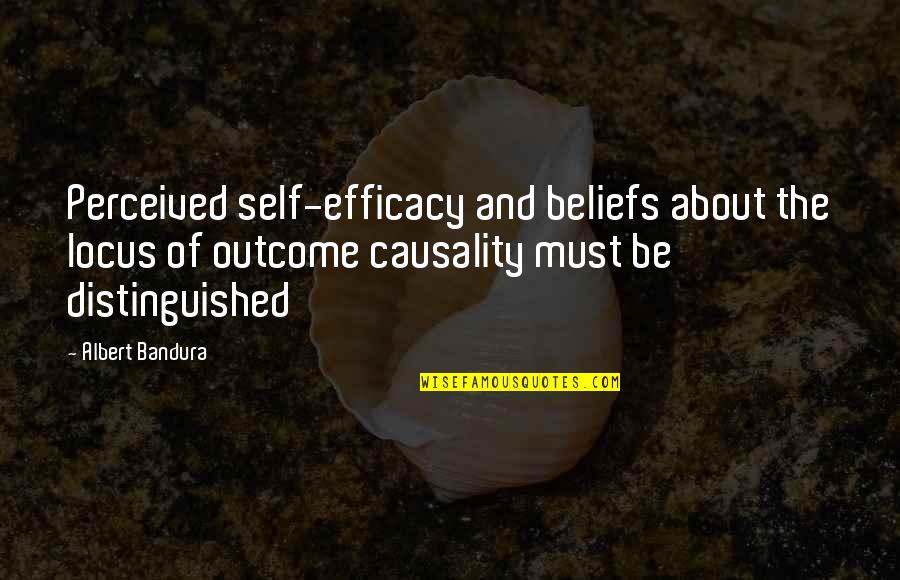 Perceived self-efficacy and beliefs about the locus of outcome causality must be distinguished
— Albert Bandura
Perceived self-efficacy and beliefs about the locus of outcome causality must be distinguished
— Albert Bandura
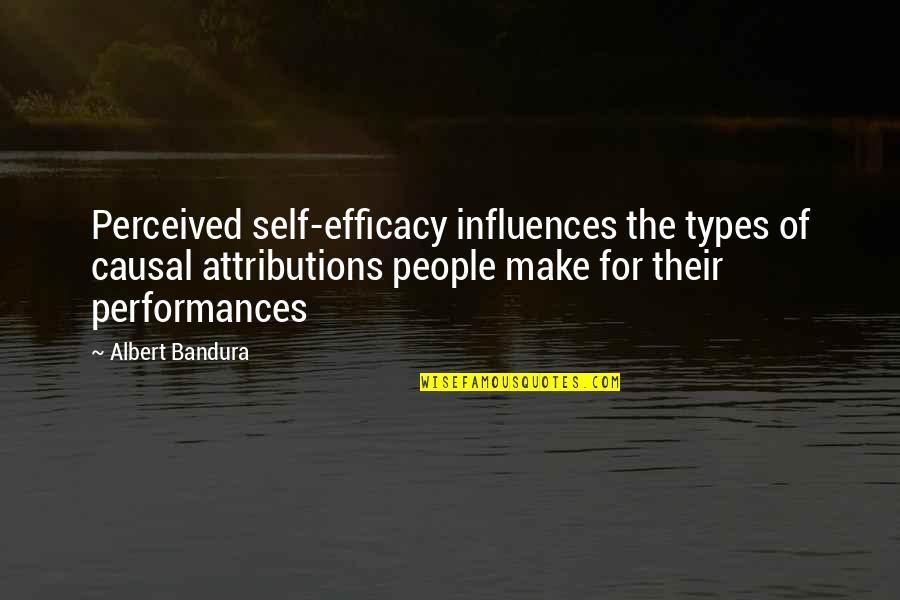 Perceived self-efficacy influences the types of causal attributions people make for their performances
— Albert Bandura
Perceived self-efficacy influences the types of causal attributions people make for their performances
— Albert Bandura
 The content of most textbooks is perishable, but the tools of self-directedness serve one well over time.
— Albert Bandura
The content of most textbooks is perishable, but the tools of self-directedness serve one well over time.
— Albert Bandura
 One cannot afford to be a realist.
— Albert Bandura
One cannot afford to be a realist.
— Albert Bandura
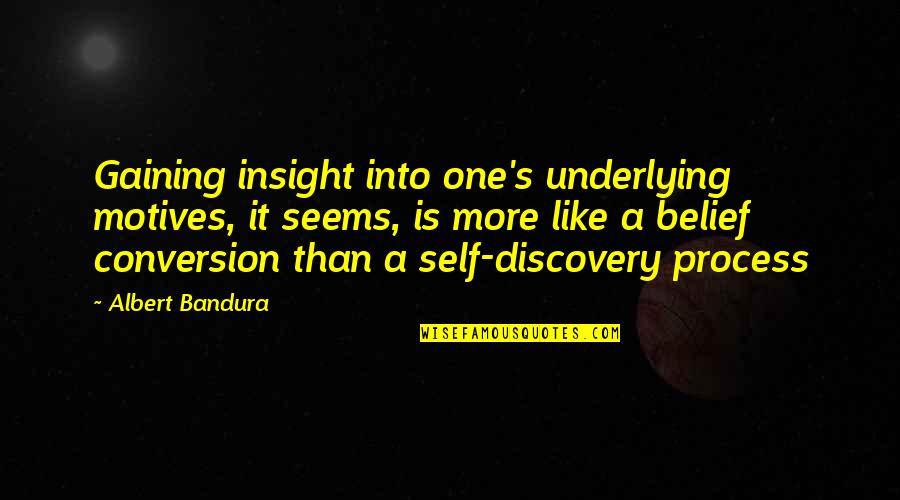 Gaining insight into one's underlying motives, it seems, is more like a belief conversion than a self-discovery process
— Albert Bandura
Gaining insight into one's underlying motives, it seems, is more like a belief conversion than a self-discovery process
— Albert Bandura
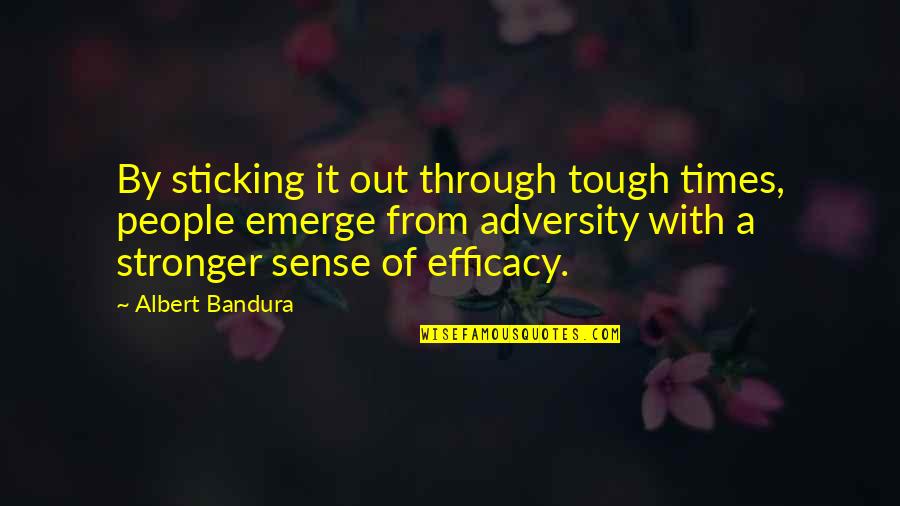 By sticking it out through tough times, people emerge from adversity with a stronger sense of efficacy.
— Albert Bandura
By sticking it out through tough times, people emerge from adversity with a stronger sense of efficacy.
— Albert Bandura
 People with high assurance in their capabilities approach difficult tasks as challenges to be mastered rather than as threats to be avoided.
— Albert Bandura
People with high assurance in their capabilities approach difficult tasks as challenges to be mastered rather than as threats to be avoided.
— Albert Bandura
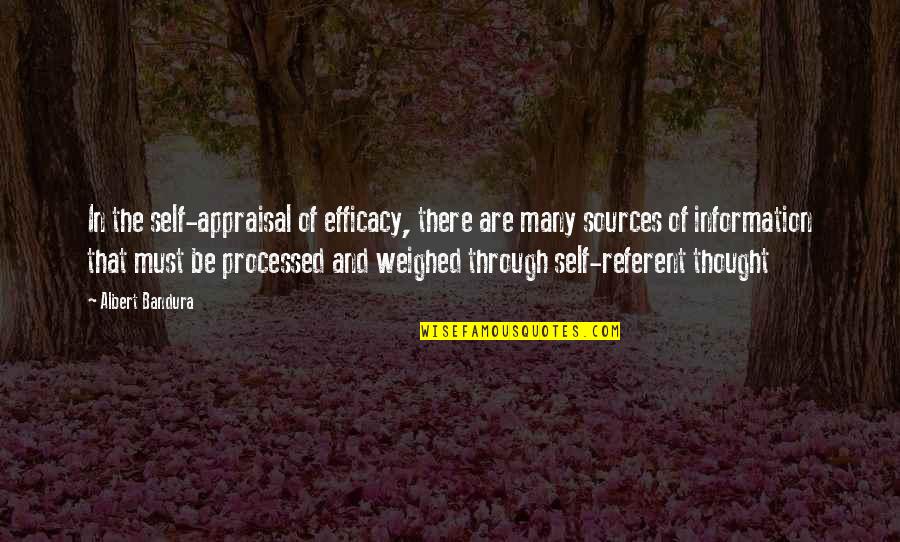 In the self-appraisal of efficacy, there are many sources of information that must be processed and weighed through self-referent thought
— Albert Bandura
In the self-appraisal of efficacy, there are many sources of information that must be processed and weighed through self-referent thought
— Albert Bandura
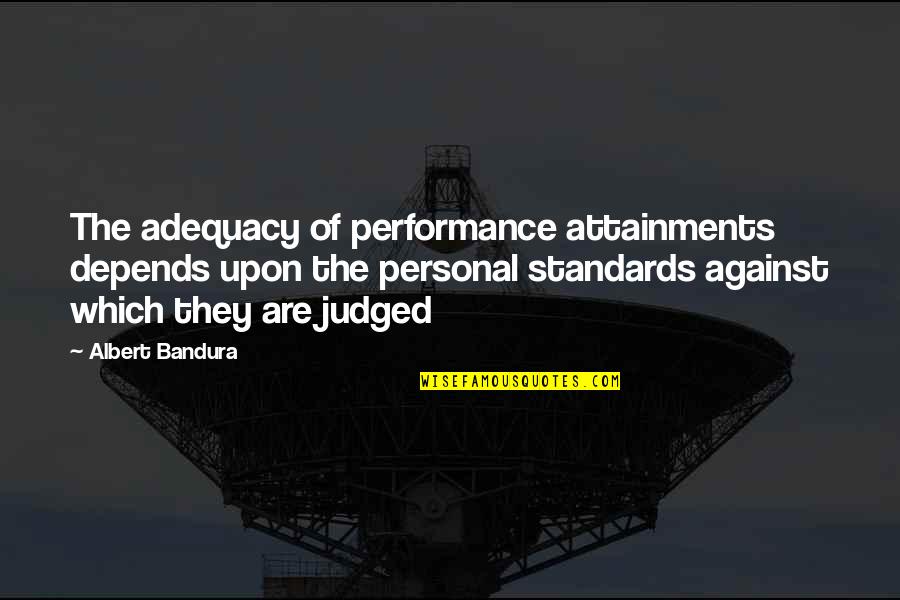 The adequacy of performance attainments depends upon the personal standards against which they are judged
— Albert Bandura
The adequacy of performance attainments depends upon the personal standards against which they are judged
— Albert Bandura
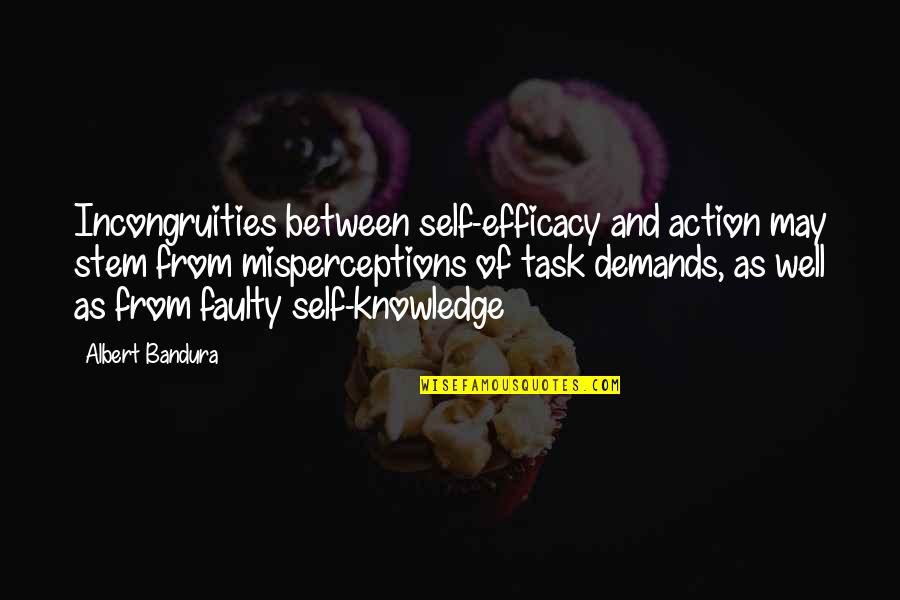 Incongruities between self-efficacy and action may stem from misperceptions of task demands, as well as from faulty self-knowledge
— Albert Bandura
Incongruities between self-efficacy and action may stem from misperceptions of task demands, as well as from faulty self-knowledge
— Albert Bandura
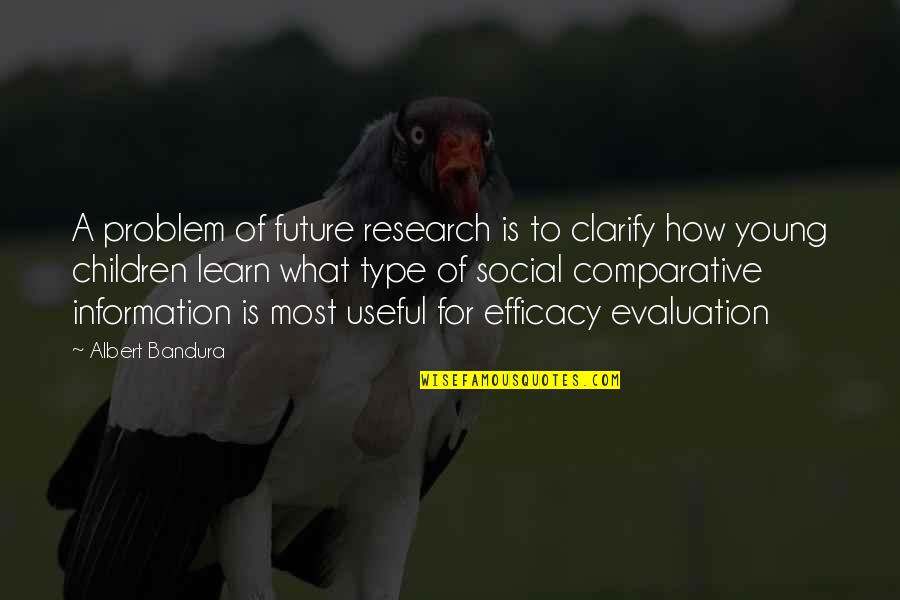 A problem of future research is to clarify how young children learn what type of social comparative information is most useful for efficacy evaluation
— Albert Bandura
A problem of future research is to clarify how young children learn what type of social comparative information is most useful for efficacy evaluation
— Albert Bandura
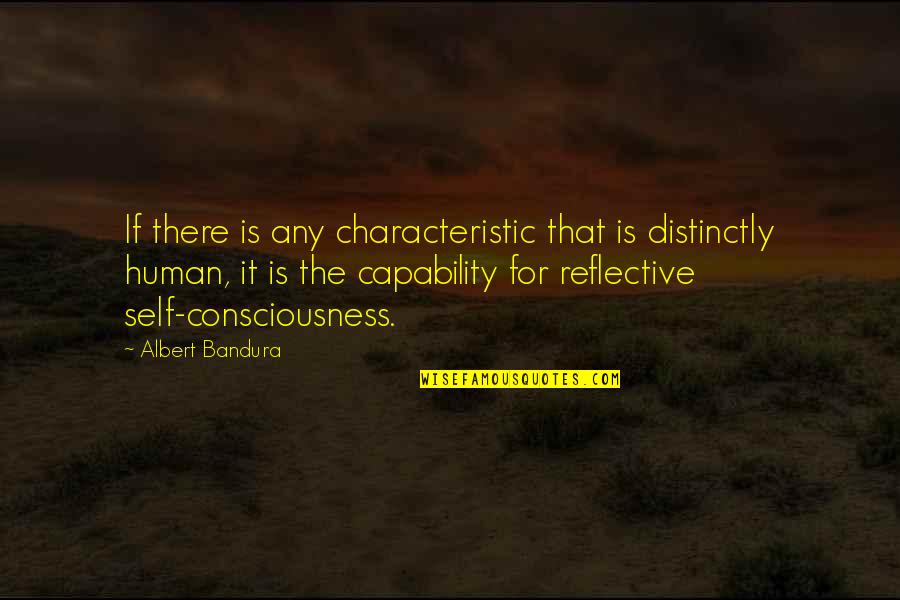 If there is any characteristic that is distinctly human, it is the capability for reflective self-consciousness.
— Albert Bandura
If there is any characteristic that is distinctly human, it is the capability for reflective self-consciousness.
— Albert Bandura
 Most of the images of reality on which we base our actions are really based on vicarious experience.
— Albert Bandura
Most of the images of reality on which we base our actions are really based on vicarious experience.
— Albert Bandura
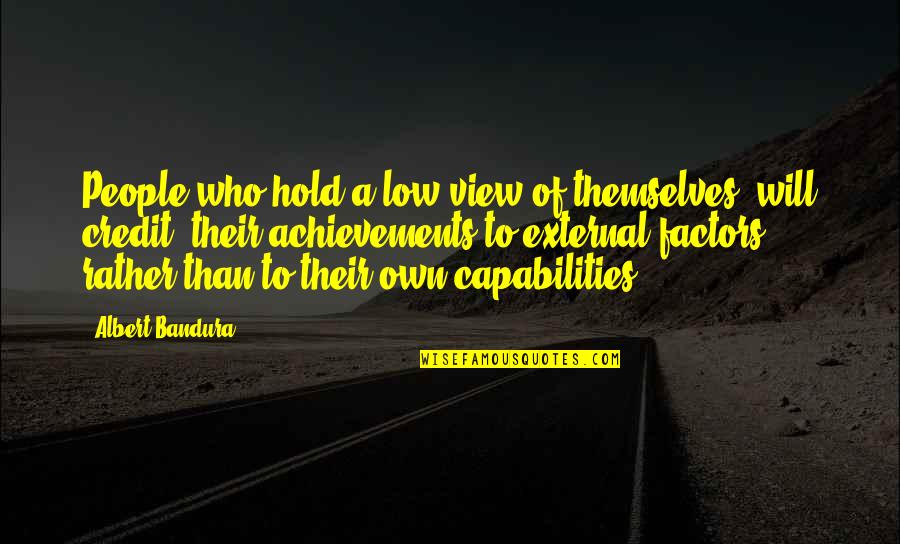 People who hold a low view of themselves [will credit] their achievements to external factors, rather than to their own capabilities
— Albert Bandura
People who hold a low view of themselves [will credit] their achievements to external factors, rather than to their own capabilities
— Albert Bandura
 Students judge how well they might do in a chemistry course from knowing how peers, who performed comparably to them in physics, fared in chemistry
— Albert Bandura
Students judge how well they might do in a chemistry course from knowing how peers, who performed comparably to them in physics, fared in chemistry
— Albert Bandura
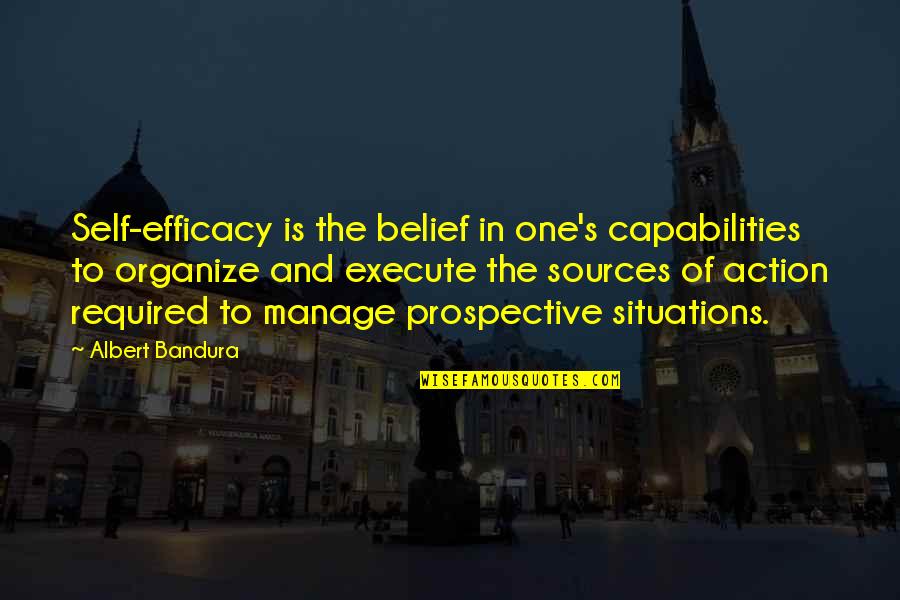 Self-efficacy is the belief in one's capabilities to organize and execute the sources of action required to manage prospective situations.
— Albert Bandura
Self-efficacy is the belief in one's capabilities to organize and execute the sources of action required to manage prospective situations.
— Albert Bandura
 Measures of self-precept must be tailored to the domain of psychological functioning being explored.
— Albert Bandura
Measures of self-precept must be tailored to the domain of psychological functioning being explored.
— Albert Bandura
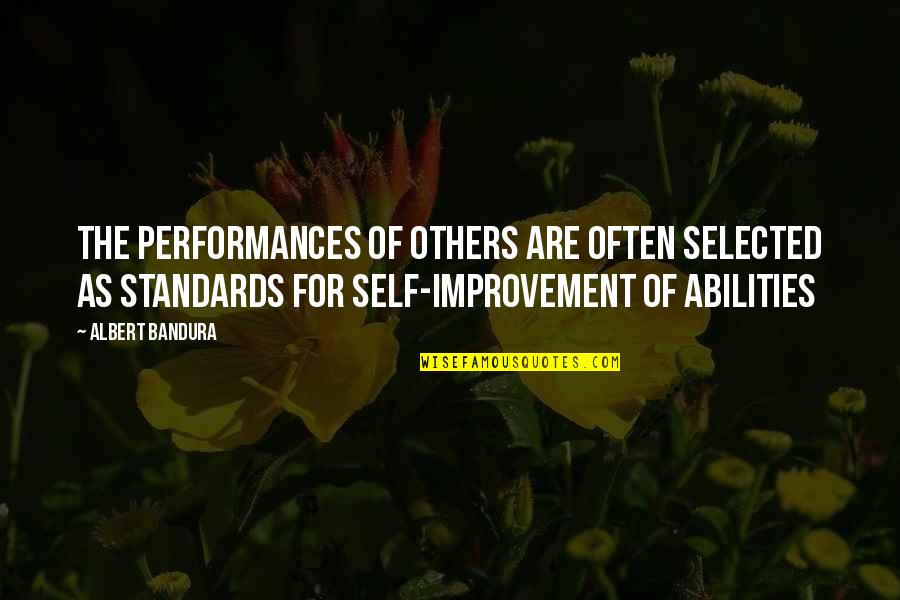 The performances of others are often selected as standards for self-improvement of abilities
— Albert Bandura
The performances of others are often selected as standards for self-improvement of abilities
— Albert Bandura
 Self-belief does not necessarily ensure success, but self-disbelief assuredly spawns failure.
— Albert Bandura
Self-belief does not necessarily ensure success, but self-disbelief assuredly spawns failure.
— Albert Bandura
 The satisfactions people derive from what they do are determined to a large degree by their self-evaluative standards
— Albert Bandura
The satisfactions people derive from what they do are determined to a large degree by their self-evaluative standards
— Albert Bandura
 People behave agentically, but they produce theories that afford people very little agency
— Albert Bandura
People behave agentically, but they produce theories that afford people very little agency
— Albert Bandura
 Because of such conjointedness, behavior that exerts no effect whatsoever on outcomes is developed and consistently performed
— Albert Bandura
Because of such conjointedness, behavior that exerts no effect whatsoever on outcomes is developed and consistently performed
— Albert Bandura
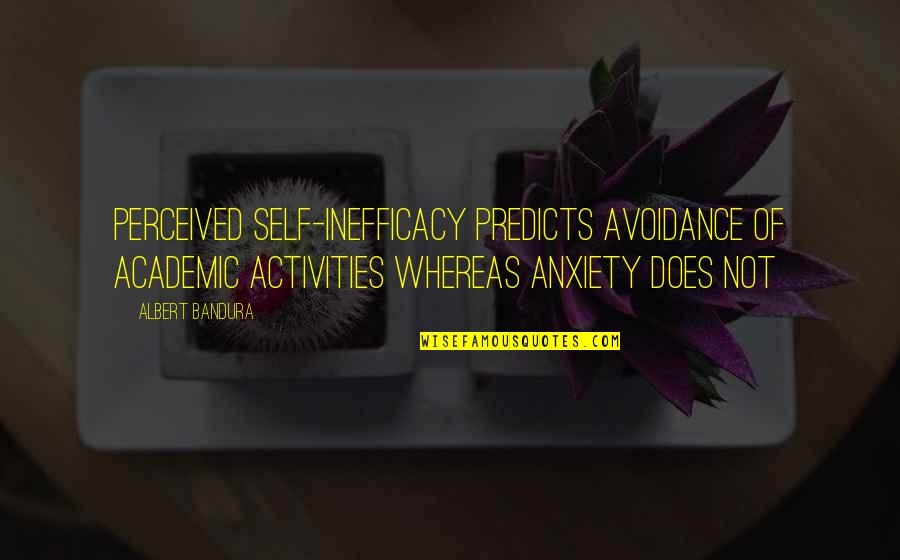 Perceived self-inefficacy predicts avoidance of academic activities whereas anxiety does not
— Albert Bandura
Perceived self-inefficacy predicts avoidance of academic activities whereas anxiety does not
— Albert Bandura
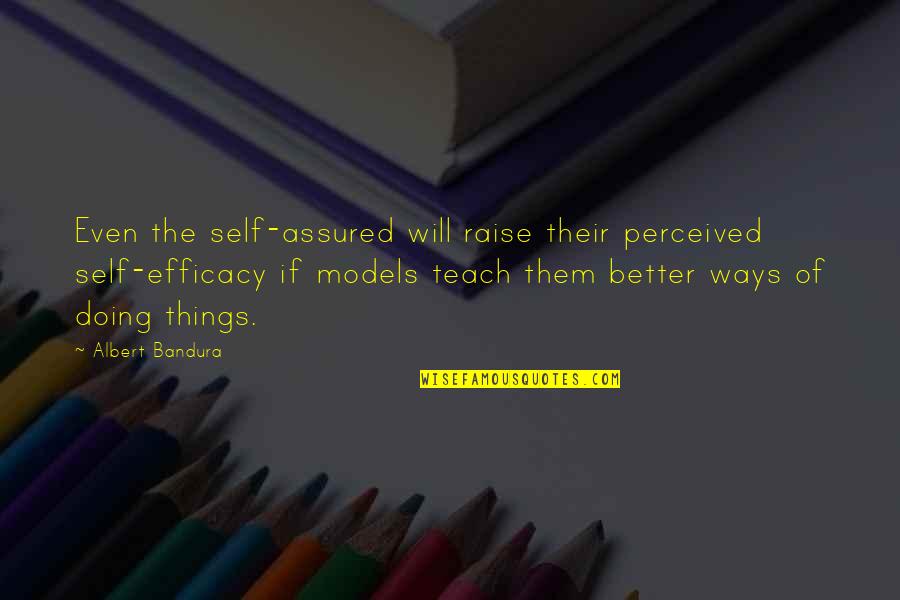 Even the self-assured will raise their perceived self-efficacy if models teach them better ways of doing things.
— Albert Bandura
Even the self-assured will raise their perceived self-efficacy if models teach them better ways of doing things.
— Albert Bandura
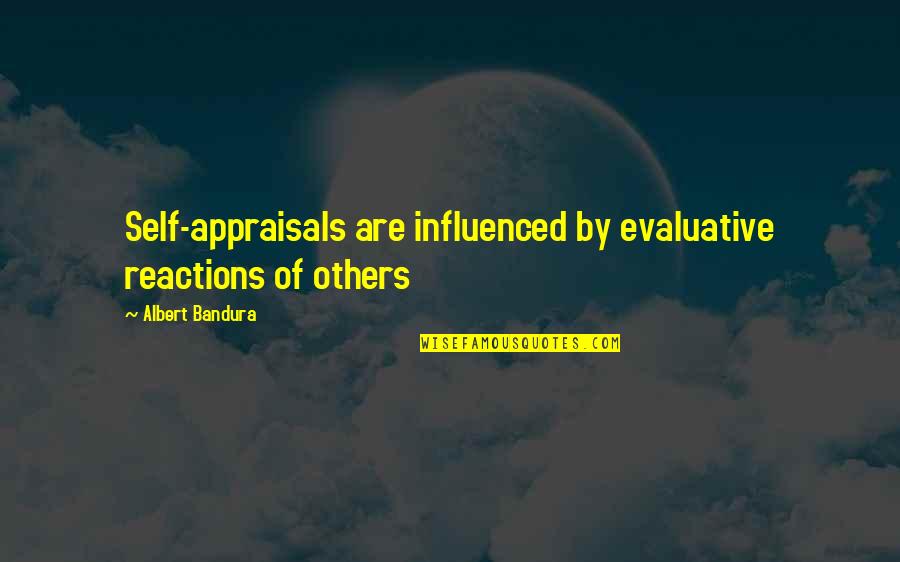 Self-appraisals are influenced by evaluative reactions of others
— Albert Bandura
Self-appraisals are influenced by evaluative reactions of others
— Albert Bandura
 Judgments of adequacy involve social comparison processes
— Albert Bandura
Judgments of adequacy involve social comparison processes
— Albert Bandura
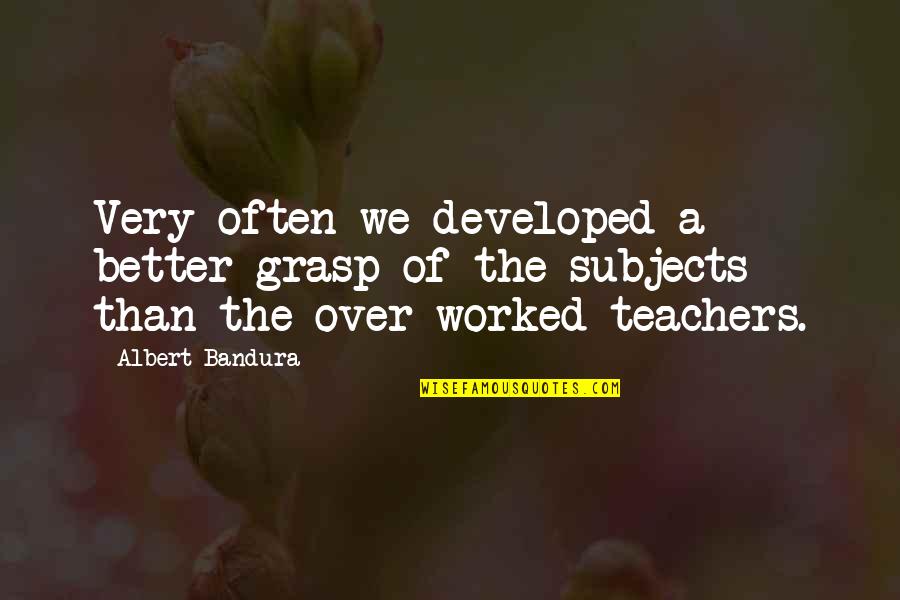 Very often we developed a better grasp of the subjects than the over worked teachers.
— Albert Bandura
Very often we developed a better grasp of the subjects than the over worked teachers.
— Albert Bandura
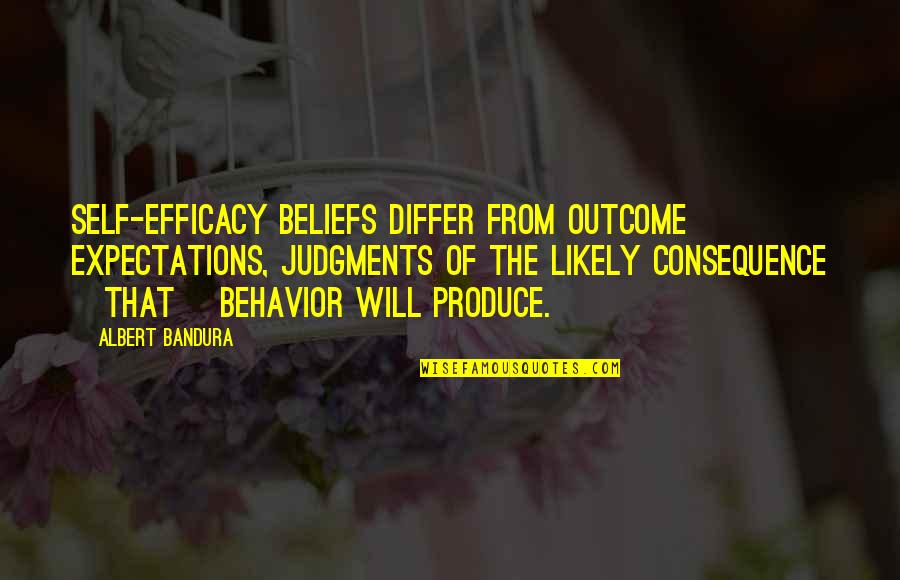 Self-efficacy beliefs differ from outcome expectations, judgments of the likely consequence [that] behavior will produce.
— Albert Bandura
Self-efficacy beliefs differ from outcome expectations, judgments of the likely consequence [that] behavior will produce.
— Albert Bandura


